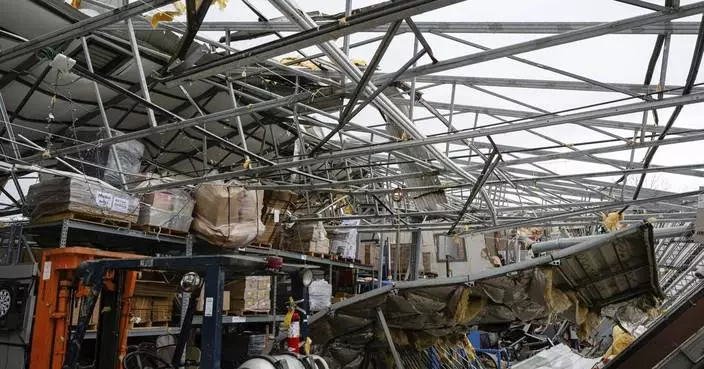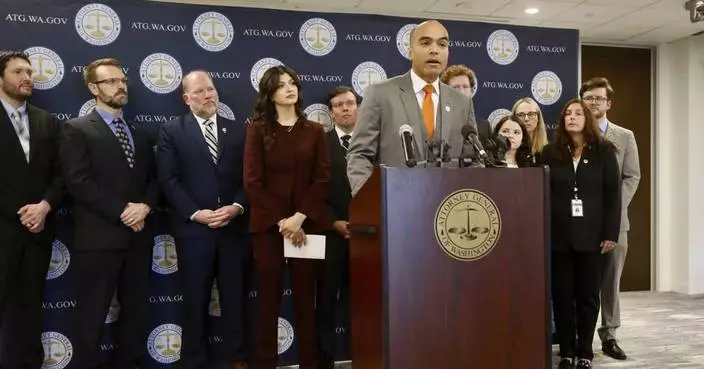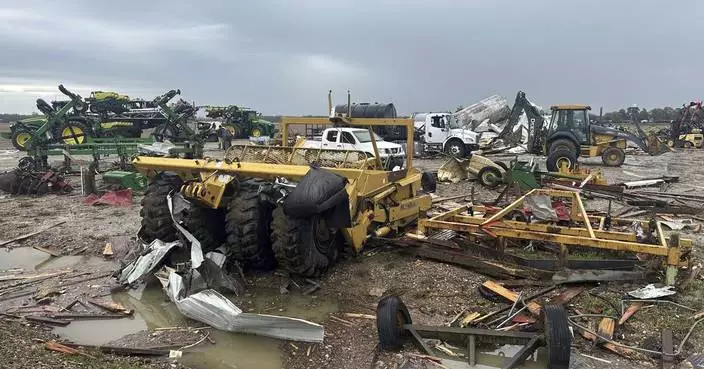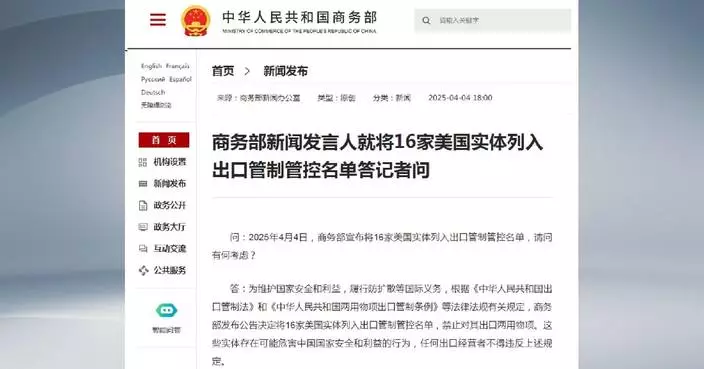NEW YORK (AP) — Of the nearly 30 speakers who recently warmed up the crowd for Donald Trump at Madison Square Garden, comedian Tony Hinchcliffe got the most attention for racist remarks.
“I don’t know if you guys know this, but there’s literally a floating island of garbage in the middle of the ocean right now. I think it’s called Puerto Rico,” he said, later including lewd and racist comments about Latinos, Jewish and Black people.
The comments have led to condemnation from Democrats and Puerto Rican celebrities, with Ricky Martin sharing a clip of Hinchcliffe's set, captioned: "This is what they think of us.”
The Trump campaign took the rare step of distancing itself from Hinchcliffe. “This joke does not reflect the views of President Trump or the campaign,” senior adviser Danielle Alvarez said in a statement.
Here's what to know about Hinchcliffe, his comedic styling and the response to his Madision Square Garden comments.
Hinchcliffe, raised in Youngstown, Ohio, is a stand-up comedian who specializes in the roast style, in which comedians take the podium to needle a celebrity victim with personal and often tasteless jokes. He has written and appeared on eight Comedy Central Roasts, including ones for Snoop Dogg and Tom Brady.
Even fellow comedians aren't immune. At the Snoop Dogg roast, Hichcliffe made a joke referencing comedian Luenell, who is Black, being on the Underground Railroad. Of the honoree, he said: “Snoop, you look like the California Raisin that got hooked on heroin.”
He had a Netflix special in 2016 — “Tony Hinchcliffe: One Shot” — which was filmed in one continuous take. But he's perhaps most famous for hosting the Kill Tony podcast since 2013, which involves both professional and amateur comedians performing for a panel of judges for 60 seconds and then enduring their criticisms.
He began opening for comics like Joe Rogan, who did a three-hour interview with Trump on his podcast last week, and Jeff Ross and is credited with writing Martha Stewart’s raunchy zingers for a roast of Justin Bieber.
He has faced backlash before, especially after he used a racial slur in 2021 about fellow comedian and Asian American Peng Dang during a gig in Austin, Texas. Hinchcliffe was dropped by his talent agency, WME, and several of his scheduled gigs were canceled. He never apologized.
“I knew that what I had done was not wrong. It wasn’t even the worst thing I did that week,” he told Variety earlier this year. “It was so dumbfounding to me because it was a joke, and my stance is that comedians should never apologize for a joke, should never stop working if everyone comes after them and should never slow down.”
Democratic vice presidential nominee Gov. Tim Walz called Hinchcliffe a “jack-wad” and U.S. Rep. Alexandria Ocasio-Cortez, a Democrat with Puerto Rican roots, called it “super-upsetting.”
Florida Republican Sen. Rick Scott, up for reelection this year in a state heavily populated with Puerto Ricans, wrote on social media that the “joke bombed for a reason,” and “Puerto Ricans are amazing people and amazing Americans!”
Roast — or insult — comedians often argue that there are no lines in comedy and that everything, no matter how sensitive, is fair game. Hinchcliffe responded to his Madison Square Garden set with a variation on don't expect an apology.
“These people have no sense of humor,” he complained on X. “Wild that a vice presidential candidate would take time out of his ‘busy schedule’ to analyze a joke taken out of context to make it seem racist. I love Puerto Rico and vacation there.”
Hinchcliffe has previously made controversial jokes about Sean “Diddy” Combs, George Floyd and the Baltimore Bridge collapse.
“I think people must realize that we are professionals. And yes, sure, we deal with the repercussions of what happens,” he told Variety.

Tony Hinchcliffe speaks before Republican presidential nominee former President Donald Trump during a campaign rally at Madison Square Garden, Sunday, Oct. 27, 2024, in New York. (AP Photo/Evan Vucci)
LITTLE ROCK, Ark. (AP) — Parts of the South and Midwest, still reeling from violent storms, tornadoes and flooding that have killed at least eight people this week, faced an ongoing threat of catastrophic flooding Friday that forecasters said would stretch into the weekend.
Severe thunderstorms threatened a swath of the country with a population of 2.3 million people from northeast Texas through Arkansas and into southeast Missouri.
In Kentucky, continued storms inundated roads and a mudslide blocked a busy highway on the outskirts of Louisville. A 9-year-old boy was killed, swept away as he walked to a school bus stop.
The downtown area of Hopkinsville, Kentucky — a city of 31,000 residents 72 miles (116 kilometers) northwest of Nashville, Tennessee — was submerged.
The first wave of storms killed at least five people in Tennessee and one each in Missouri and Indiana on Wednesday and Thursday.
Tennessee Gov. Bill Lee called the devastation in his state “enormous” and said it was too early to know whether there were more deaths as searches continued.
There was massive destruction in Lake City in eastern Arkansas, where homes were flattened and cars were flipped and tossed into trees.
At least 318 tornado warnings have been issued by the National Weather Service since this week's tornado outbreak began early Wednesday, and that was likely to grow. It has already eclipsed the 300 tornado warnings issued during last month’s deadly outbreak in Arkansas, Mississippi, Missouri and other states.
Not all tornado warnings involve an actual tornado, and it was too early to know how many were actually produced by the current outbreak.
The severe weather hit at a time when nearly half the National Weather Service's forecast offices have 20% vacancy rates — twice that of a decade ago — according to data obtained by The Associated Press.
Forecasters attributed the violent weather to warm temperatures, an unstable atmosphere, strong wind shear and abundant moisture streaming from the Gulf.
The prolonged deluge, which could dump more than a foot (30 centimeters) of rain over a four-day period, “is an event that happens once in a generation to once in a lifetime,” the National Weather Service said.
Private forecasting company AccuWeather said northeastern Arkansas, southeastern Missouri, southern Illinois, western Kentucky and northwestern Tennessee needed to prepare for a catastrophic risk from flash flooding.
“This is a rare and dangerous atmospheric setup,” said Jonathan Porter, AccuWeather chief meteorologist.
Forecasters have also warned of major disruptions to shipping and supply chains. Shipping giant FedEx, for example, has a massive facility in the danger area, in Memphis Tennessee. Barge transportation on the lower Mississippi River could also be affected.
Water rescue teams and sandbags were being set up across the region in anticipation of flooding, and authorities warned people to take the threat of rising water seriously.
“We need everyone to understand that all water poses risk right now and to take every precaution," Kentucky Gov. Andy Beshear said.
Associated Press writers George Walker IV in Selmer, Tennessee; John Seewer in Toledo, Ohio; Jeff Martin in Atlanta; Adrian Sainz in Memphis, Tennessee; Jonathan Mattise in Nashville, Tennessee, Seth Borenstein in Washington; and Bruce Schreiner in Shelbyville, Kentucky, contributed.
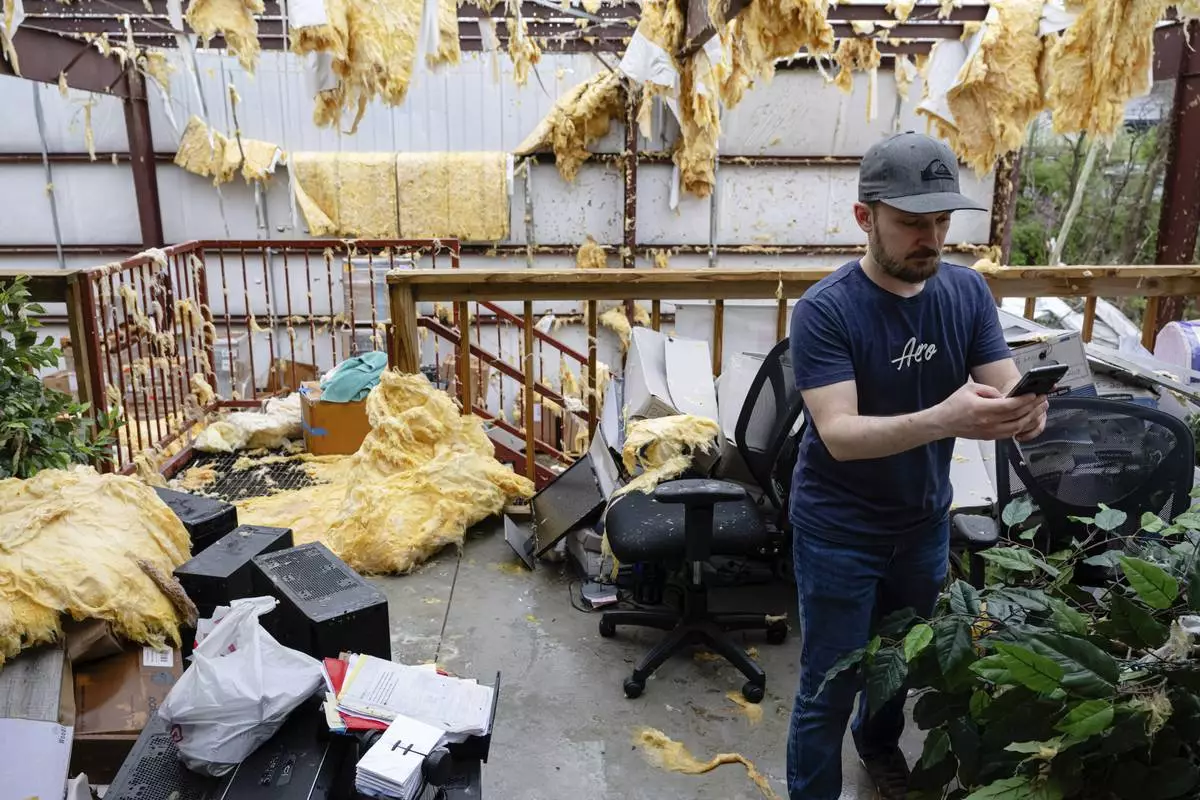
Daniel Fraser takes a photograph in the warehouse of the damaged building of Specialty Distributors after a tornado passed through an industrial industrial park on Thursday, April 3, 2025, in Jeffersontown, Ky. (AP Photo/Jon Cherry)
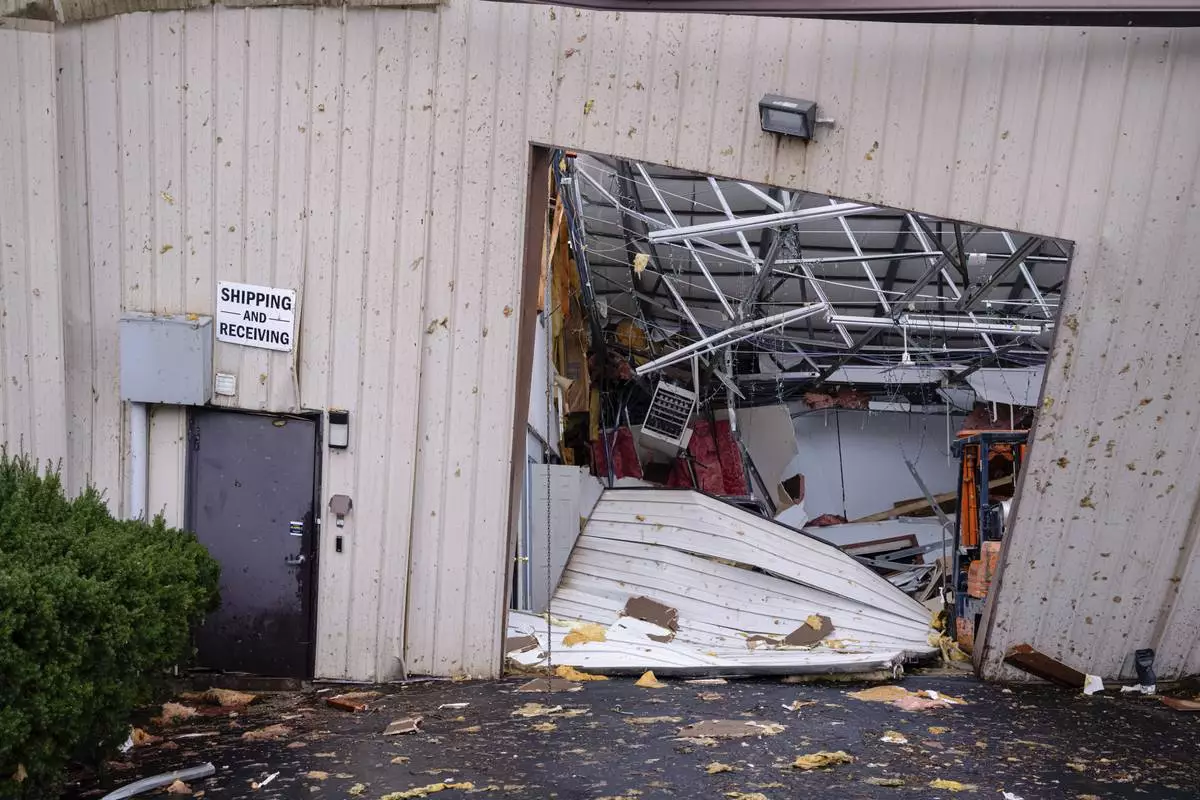
A shipping and receiving bay door is damaged along with the interior of the Gordon-Hardy building after severe weather passed through an industrial industrial park on Thursday, April 3, 2025, in Jeffersontown, Ky. (AP Photo/Jon Cherry)
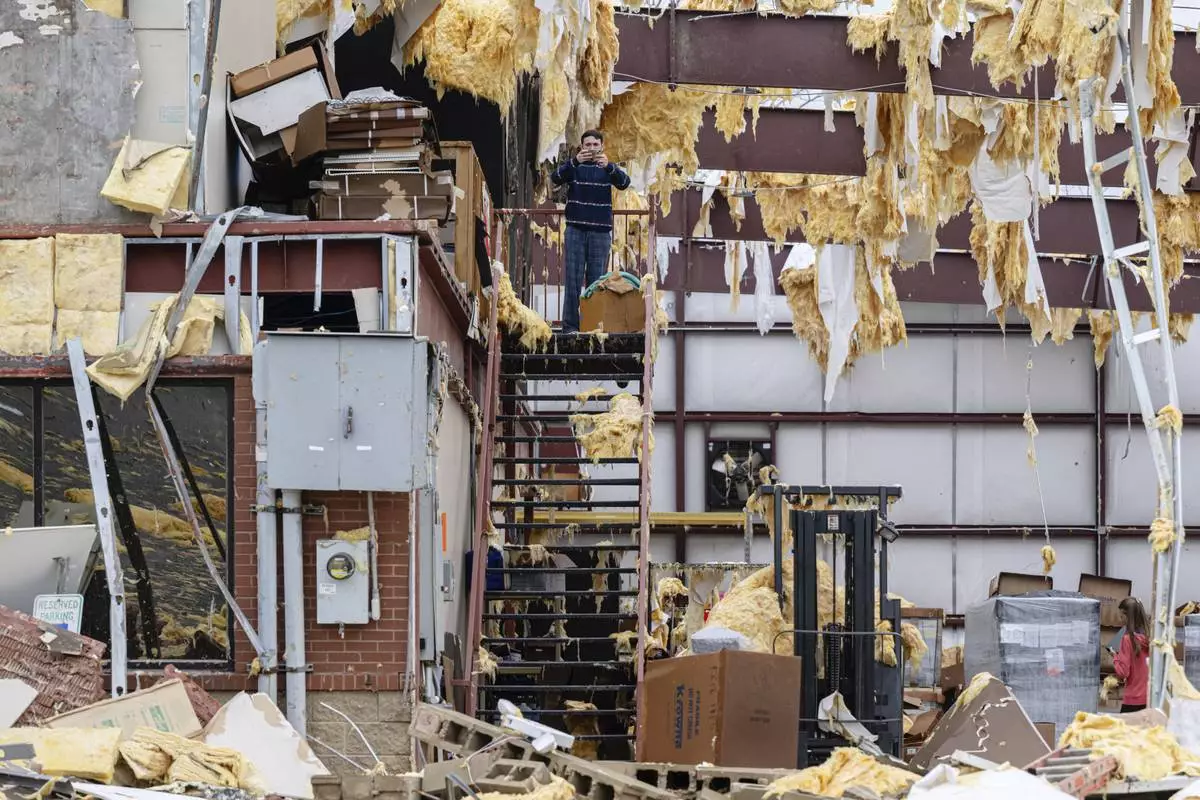
William Fraser takes photographs inside the warehouse of a damaged building of Specialty Distributors after severe weather passed through an industrial industrial park on Thursday, April 3, 2025, in Jeffersontown, Ky. (AP Photo/Jon Cherry)
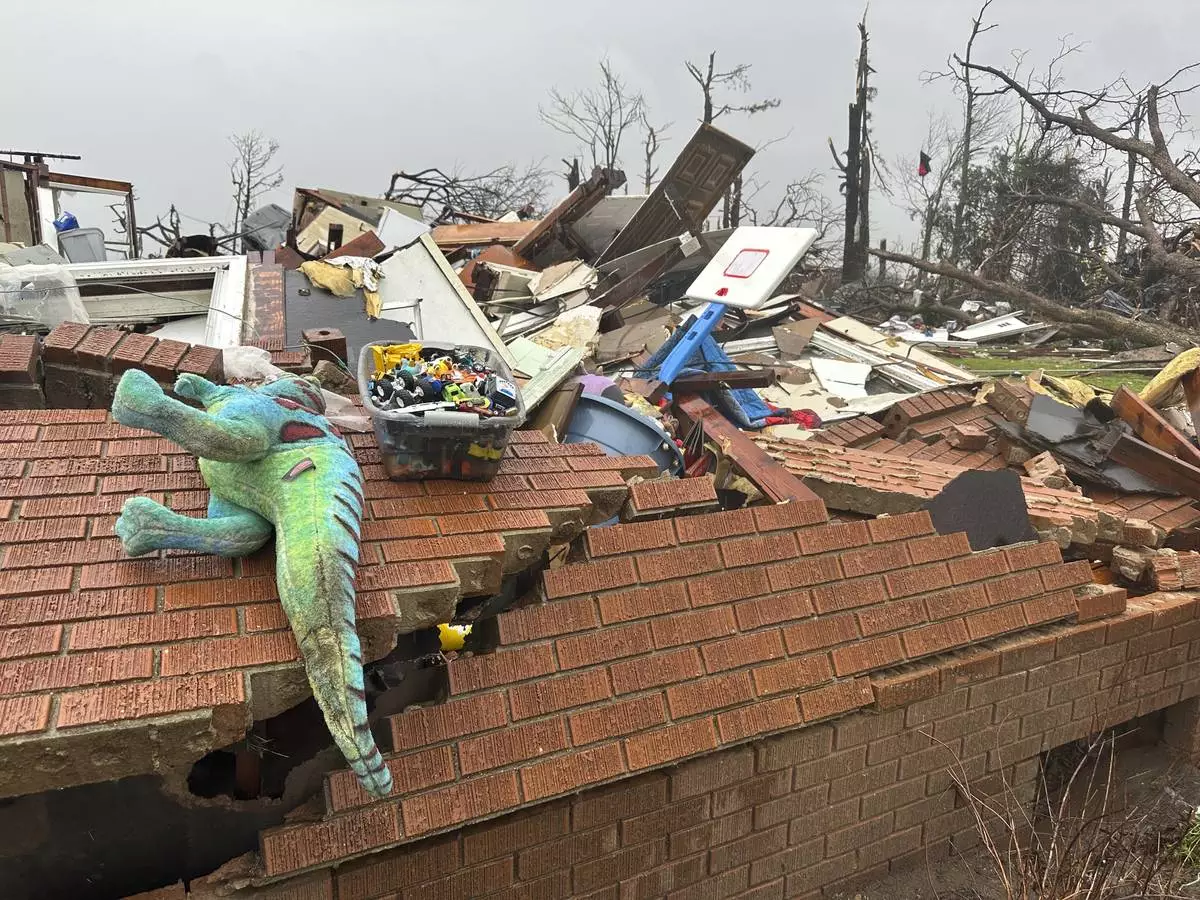
A home is in ruins after severe weather passed through Lake City, Ark., on Thursday, April 3, 2025. (AP Photo/Adrian Sainz)










